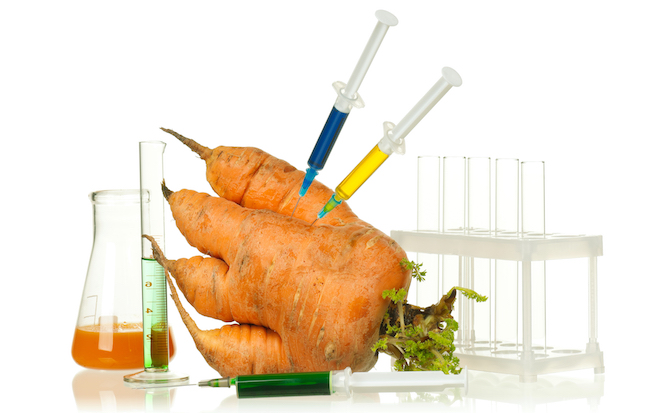
Everyone has that friend — you know, the one who won’t put anything into his body unless it’s “all natural” and demands that his water be gluten-free even though water generally is? If you’re tired of rolling your eyes at that person, here’s some info that can really help you out next time you’re stuck in a conversation with someone who’s just “eating, like, really healthy right now, you know?” That “natural” label is meaningless. Unless what they’re eating is pure sulfur (which is naturally occurring), then yes, that’s fine, go back to gnawing on a rock that smells like rotten eggs.
Consumer Reports, the no-nonsense publication that aims to make sure you buy the best of everything, points out that while foods are allowed to be labeled all-natural by manufacturers, there’s really no one regulating companies to make sure that what they’re selling you isn’t just a load of lies, especially when the food you’re buying is processed to high heaven.
From Consumer Reports:
…for processed foods, that term has no clear meaning and is not regulated by any agency. That’s why we petitioned (PDF) the Food and Drug Administration in 2014 to ban the use of “natural” on labeling so thatshoppers aren’t misled. (We have also asked the Department of Agriculture to ban the use of “natural” onmeat and poultry because it is currently not well-defined or meaningful.)
The FDA has responded by asking the public to comment on how the word “natural” should—or should not—be used on food labels, citing Consumer Reports’ petition as one of the reasons it’s taking that important step.
And just in case you were wondering, people are not happy with how food companies are marketing their foods. In fact, one Florida resident wrote that “The use of the word ‘natural’ is a deceptive marketing ploy to reel in unaware consumers. People are led to believe it is the same as ‘organic,’ which it surely is not.” (Note, though, that labeling something organic comes with its own set of issues.)
So, what does Consumer Reports want? Banning of the word “natural” on products unless it has some kind of meaning behind it. Because currently, it could mean anything. This is what Urvashi Rangan, Ph.D., director of the Consumer Reports Food Safety & Sustainability Center wants the label to mean:
..’For foods regulated by the FDA, we believe the “natural” label should be reserved for foods that are organic and contain no artificial ingredients. We also believe verification should be required to ensure that foods labeled “natural” truly meet that definition, like the process currently used for the term “organic.”
Consumer Reports even has a list of foods that claim to be “natural,” but are full of chemicals. And no, not the natural kind of chemicals (although, again, not all of those are good) but the industrial kind. Del Monte fruit naturals, for instance, is made with real fruit. But it’s also hiding a whole lot of artificial preservatives — potassium sorbate and sodium benzoate — under its label.
Everyone expects fruit cups to be full of sugar and preservatives, though, so Consumer Reports went even deeper:
Tyson Grilled & Ready Frozen Southwestern Chicken Breast Strips: “All natural except for corn syrup solids” appears on the front, but the ingredient list shows that the strips contain corn sweeteners dextrose and maltodextrin. When we asked whether they came from GMO corn, Tyson responded that the government’s “natural requirements do not address GMO.” The strips also contain citric acid, typically a lab-produced additive derived from bacteria.
Kraft Natural Cheese: This “natural” cheese contains cellulose powder—a substance typically created when pieces of wood, cotton, or bamboo are cooked in a caustic solution at high temperatures—which is supposed to keep shreds of cheese from sticking together. Kraft did not respond to inquiries about the source of its cellulose powder. And to inhibit mold growth it contains the antifungal natamycin, which is also used as a pesticide.
Consumers, of course, should educate themselves by reading labels and boning up on their chemical compounds (especially when you’ve got a cellular handy at all times), because companies like Kraft and Del Monte aren’t just here to keep you fed, they’re here to make money. And according to Consumer Reports, they’re definitely winning because a poll of shoppers shows that 62 percent of people stalking the grocery store aisles are more likely than not to be looking for products that they think might be good for them by being labeled natural, even though they have no idea what that actually means.
Check out the entire fascinating article here and never shop naively again.
(Via Consumer Reports)






